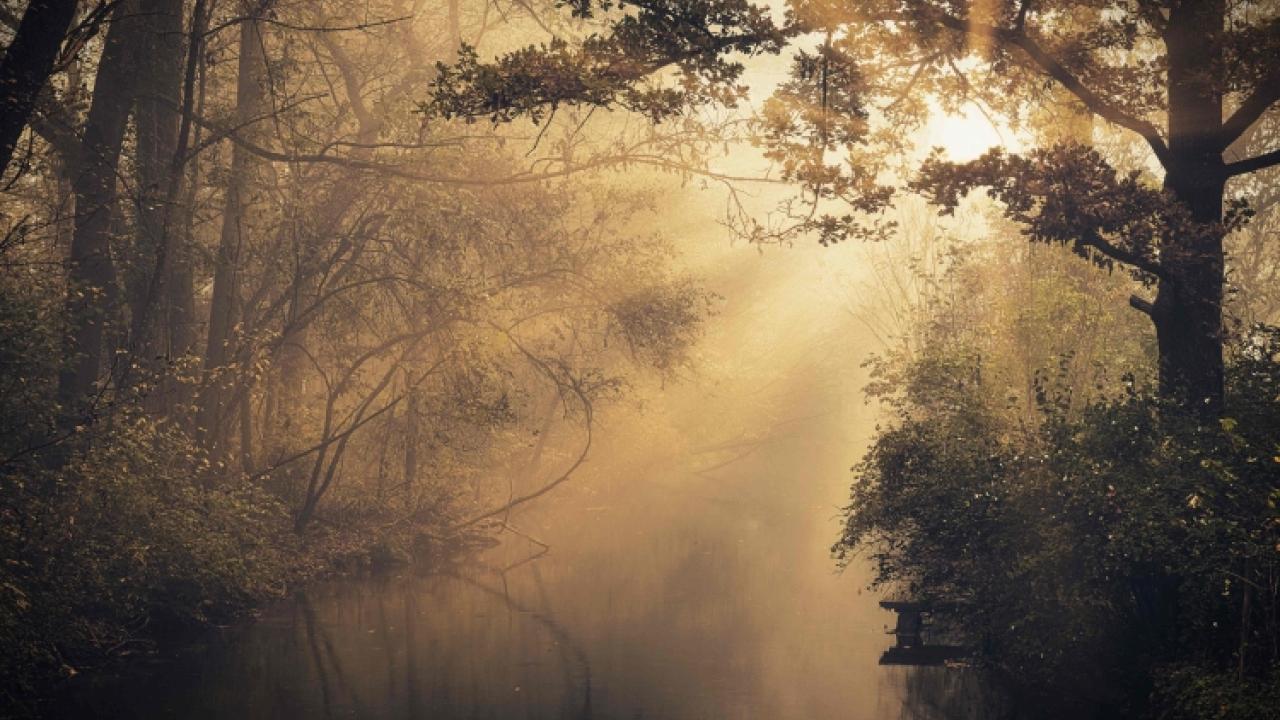Updated July, 2025
Is it possible that my desire for the logical, the factual, and the easily comprehensible has kept me from seeing, experiencing, and maybe even believing that God is at work here and now? That’s the question that arose in my mind (or was it my soul?) as I read through the articles in this issue.
Do I really hear the mystery and wonder and miracle in the biblical accounts of the Ascension and Pentecost? Or has the media so affected me that when I read about Christ ascending into heaven I imagine it as no more significant than Captain Kirk saying “Beam me up, Scotty” on Star Trek? Do the flames and wind of Pentecost seem little more than special effects—an interesting and necessary part of the story but not worth much additional thought? I sometimes wonder.
If I could transport myself back to that time, if I could allow my imagination to place me right in the middle of that story, I wonder what I would have felt and thought. I wonder how I would have responded. How strange it must have been for the disciples to see Christ ascend from the earth! Being Lord of the universe logically includes being Lord over the law of gravity . . . but what an unbelievable event to witness!
And how astonishing it must have been to be present at Pentecost, to witness the sounds and sights, the words and languages that came out of the apostles’ mouths. Imagine Peter, an uneducated fisherman, suddenly finding an eloquence of speech that transcended language barriers. Mind-boggling, miraculous, extraordinary . . . and all the work of the Holy Spirit.
Imagine Peter, an uneducated fisherman, suddenly finding an eloquence of speech that transcended language barriers.
The miraculous truth of the ascension is that Christ now sits at God the Father’s right hand, and is even now interceding on our behalf. He is both King and Priest, and one of his first acts as the ascended Lord of the universe is to send the Holy Spirit to work in and through the church, Christ’s body here on earth.
It’s important for us to realize the historicity of these events—to recognize that they occurred at a specific point in time in a specific place with human witnesses. These events are real; they’re not a creation of first-century Christian media outlets. The shock waves of those events are still being felt today . . . for those who are willing to stop and look and pay attention. Are these things too big for my mind to grasp, too wonderful for my heart to ponder?
The Holy Spirit continues to be active in our lives. As Janice Smith Ammon suggests in her Reflections (p. 48), the sacred makes itself known and felt in unexpected ways. Sometimes we are so busy that we overlook sacred moments or don’t take the time to truly experience them. We put the music of Arvo Pärt in the background as we work rather than allowing the ethereal sounds and text to overwhelm our senses and make room for the Spirit.
Sometimes it takes a child’s insistence for us to stop and watch the busy ants work to gather their food or to appreciate the intense yellow of a dandelion and praise the God who made them. Sometimes we read God’s Word and engage only our mind, rather than allowing it to sink in to our heart and soul. Stop, look, and listen!
God’s kingdom continues to grow and expand in unexpected ways. The Holy Spirit is at work in our lives, our community, and our world, often unnoticed. I can’t think of a better way to develop our sensitivities than by following the example of the psalmists who recite the acts of God as the reason for praise. Isn’t it true that sometimes we overlook the working of the Holy Spirit in our lives because we never take the time to name it? We fail to give testimony to its work, its power. When that happens, we also deprive our community of joining with us in praise.
We need the reminder and teaching of Allen Ross (p. 42) on how to present a testimony that doesn’t call attention to ourselves but rather gives the glory to God and results in communal praise. By sharing with me what God is doing in your life, you remind me of God’s presence in my own, even when I may not be aware of it. This is a wonderful gift we can give each other.
I wonder what it would be like for me to allow more time for the sacred, the mysterious? I wonder what it would look like to spend more time wondering and more time listening to the whispering of the Holy Spirit? I wonder if my testifying to the working of God in my own life might be an encouragement to you and if your testimony might be the same for me? To look for the unexpected, to allow for the sacred. I’m eager to do more of both. How about you?

